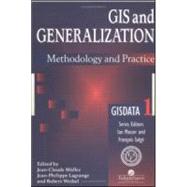- ISBN: 9780748403196 | 0748403191
- Cover: Nonspecific Binding
- Copyright: 4/20/1995
This text is the inaugural book in Taylor and Francis's GISDATA series, and is derived from the specialist workshop convened under the auspices of the European Science Foundation's GISDATA Scientific Programme. Generalisation is an integrating tool for the analysis and presentation of spatial data. Effective spatial data analysis requires multiple views of the world at various scales with different thematic layers of representation. Generalisation is a key mechanism in this process, as it filters out information which is required for particular scales or layers; hence it is critical to implement full and comprehensive generalisation capabilities in a GIS, something with which few current GIS are equipped.; This book overviews the core and as-yet unresolved issues surrounding the achievement of this goal, and presents various alternatives - both speculative views and practical examples - in the areas of automated generalisation, vis-a-vis problems such as object simplification and placement. At the same time it distinguishes between modelling with generalisation and graphical representation, and adopts a model-building perspective. It also describes artificial intelligence techniques for implementing automated generalised routines, and addresses issues of data quality and production.; The text is organized into six parts: an introduction; generic issue; object-orientated methods and knowledge-based modelling; knowledge acquisition and representation; data quality; and operation and implementation.







